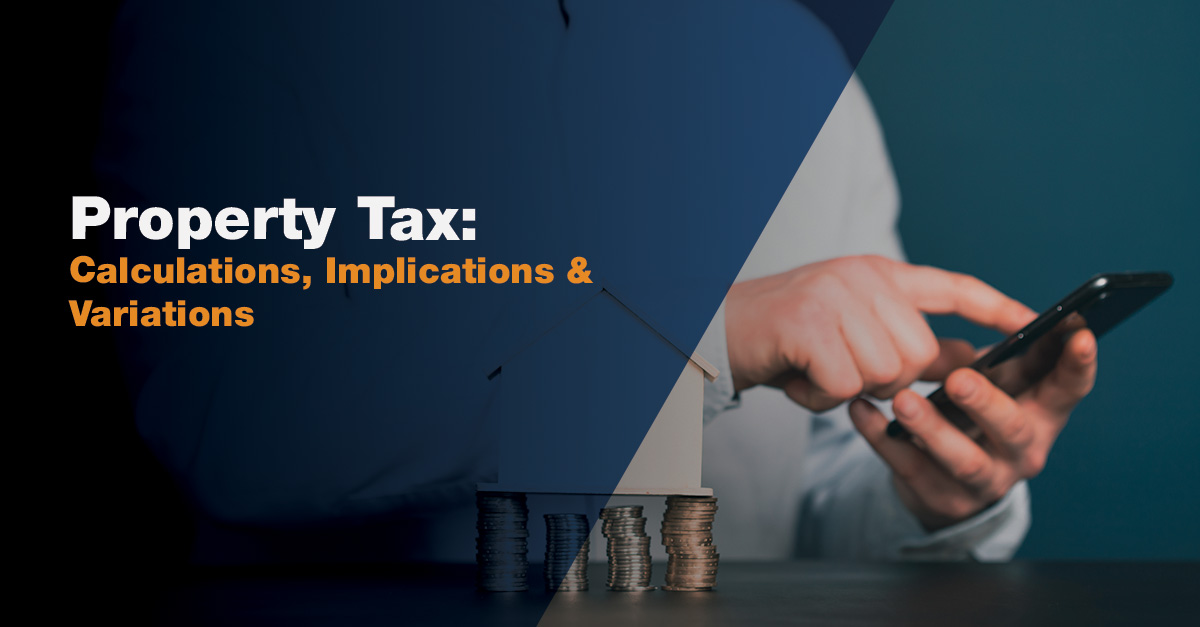Property tax, a critical source of revenue for local governing bodies, plays a pivotal role in fostering community development and well-being. This form of ad-valorem tax, applicable to both real estate and tangible personal property, such as cars and boats, is instrumental in funding essential local services. Understanding its intricacies is vital for property owners navigating their fiscal responsibilities and assessing the value they receive in community benefits.
The Basics of Property Tax
Property Tax Definition
Property tax is an ad-valorem tax levied on the value of property, typically real estate, that the owner is required to pay. It differs from real estate tax in that it can also be applied to tangible personal property. The nature of this tax is regressive, meaning it may disproportionately affect lower-income individuals, as it is based on the property's value rather than the owner's income. Grasping this distinction and the implications of a regressive tax system is essential for a nuanced understanding of property taxation.
Types of Properties Taxed
While real estate—land and buildings—is the most common subject of property tax, tangible personal property such as cars, boats, and machinery is also taxable. The inclusion of various property types underscores the tax's comprehensive reach and its role in shaping local government services and infrastructure.
How Does Property Tax Work: Calculation and Basis
Assessing Property Value: What Property Taxes are Based On
The tax assessor plays a crucial role in determining the assessed value of the property, which forms the basis for calculating the property tax. Various appraisal methods are employed to ascertain this value, ensuring it reflects the property's market value accurately. Understanding how assessed value correlates with market value is key for property owners evaluating their property tax bill.
Understanding Local Tax Rates
Local governing bodies set tax rates, which vary by location and the range of services provided. This variability underscores the importance of being informed about local tax laws and the services funded by property taxes, enabling property owners to assess the value they receive in return for their contributions.
How are Property Taxes Calculated
Calculating property tax involves multiplying the assessed value by the local tax rate. Property owners must also consider exemptions, deductions, and additional assessments that might affect the final amount. A step-by-step guide to this calculation empowers property owners to anticipate their tax obligations and plan accordingly.
Payment and Contestation of Property Tax
Payment Schedules and Obligations
Adhering to property tax payment schedules is a fundamental obligation for property owners. Timely payments ensure the uninterrupted provision of local government services and prevent the imposition of penalties. Understanding the payment schedule and the significance of meeting tax obligations helps property owners avoid financial pitfalls and contribute responsibly to community development.
Contesting Property Tax Rates
Property owners have the right to contest property tax rates if they deem them unjust. Engaging in discussions with the tax assessor and utilizing formal contestation mechanisms can lead to adjustments. However, neglecting to pay property taxes can result in severe consequences, including tax liens and potential property loss. Being informed about contestation procedures and the repercussions of unpaid taxes is crucial for safeguarding property ownership.
Implications and Uses of Property Tax
Funding Local Services and Improvements
Property tax revenues are the lifeblood of local governments, funding essential services and community improvements. These revenues support education, law enforcement, road construction, libraries, and more, enhancing the quality of life for residents. Understanding how property tax contributes to community well-being allows property owners to appreciate the value derived from their fiscal contributions.
Impact on Property Owners
For property owners, comprehending the significance of property tax is paramount. This tax not only influences property value but also affects ownership dynamics. A well-informed property owner can navigate the property tax landscape effectively, balancing their financial obligations with the benefits received from local government services.
Property Tax Variations: A Closer Look at California
What is Property Tax in California
California presents a unique landscape for property tax, shaped significantly by Proposition 13, which caps property tax rates and limits increases in assessed value. Understanding how property tax works in California is essential for property owners in the state, as it influences both tax obligations and property value. Proposition 13 has had a lasting impact, creating a distinct property tax framework that sets California apart from other states.
Factors Influencing Property Tax in California
In addition to the baseline property tax, California property owners may encounter additional local taxes, bonds, and assessments that influence the total tax bill. The variability of property tax rates across different jurisdictions in California adds another layer of complexity. Staying informed about these factors and their influence on property tax is crucial for California property owners seeking to navigate their fiscal responsibilities effectively.
Conclusion
Navigating the landscape of property tax requires a comprehensive understanding of its definition, calculation, implications, and variations. From assessing property value to understanding local tax rates and the impact on communities and property owners, each aspect plays a pivotal role. For residents of states with unique frameworks like California, staying informed about state-specific factors is equally important. Reflecting on the importance of being informed about property tax underscores the value of knowledge in empowering property owners and fostering thriving communities.
.png)


.png?width=170&height=64&name=Logo%20320x120(2).png)
